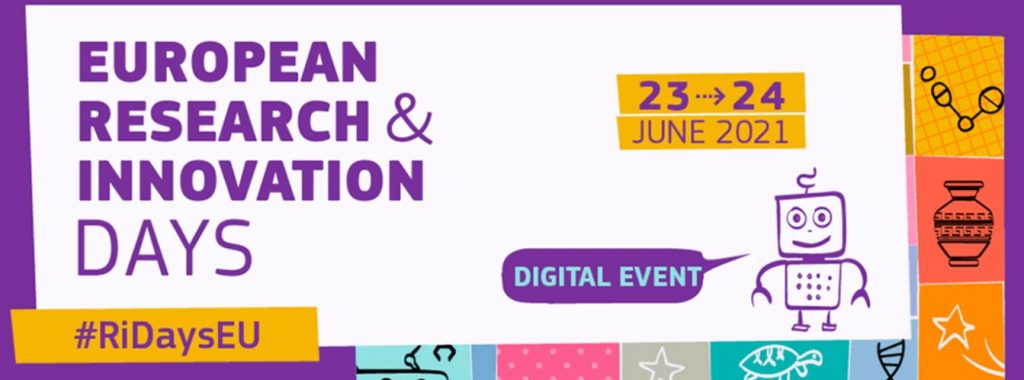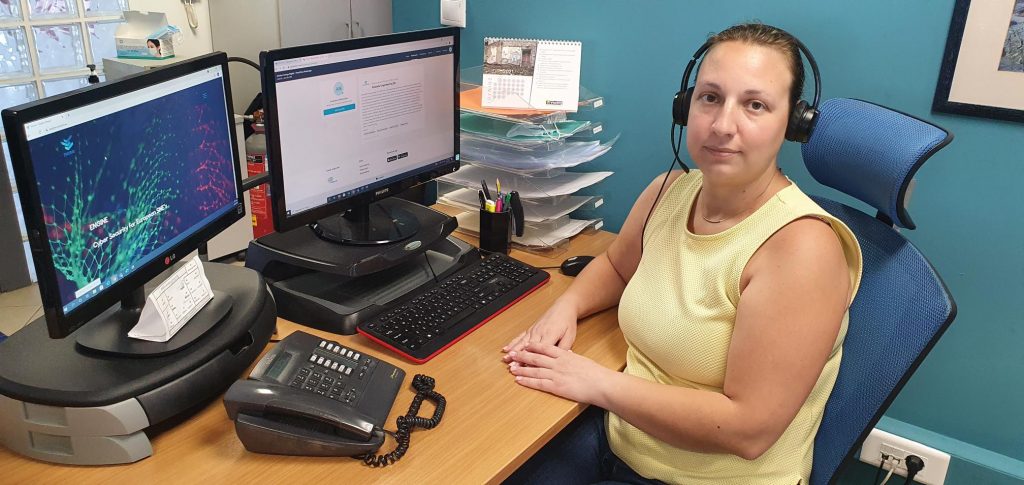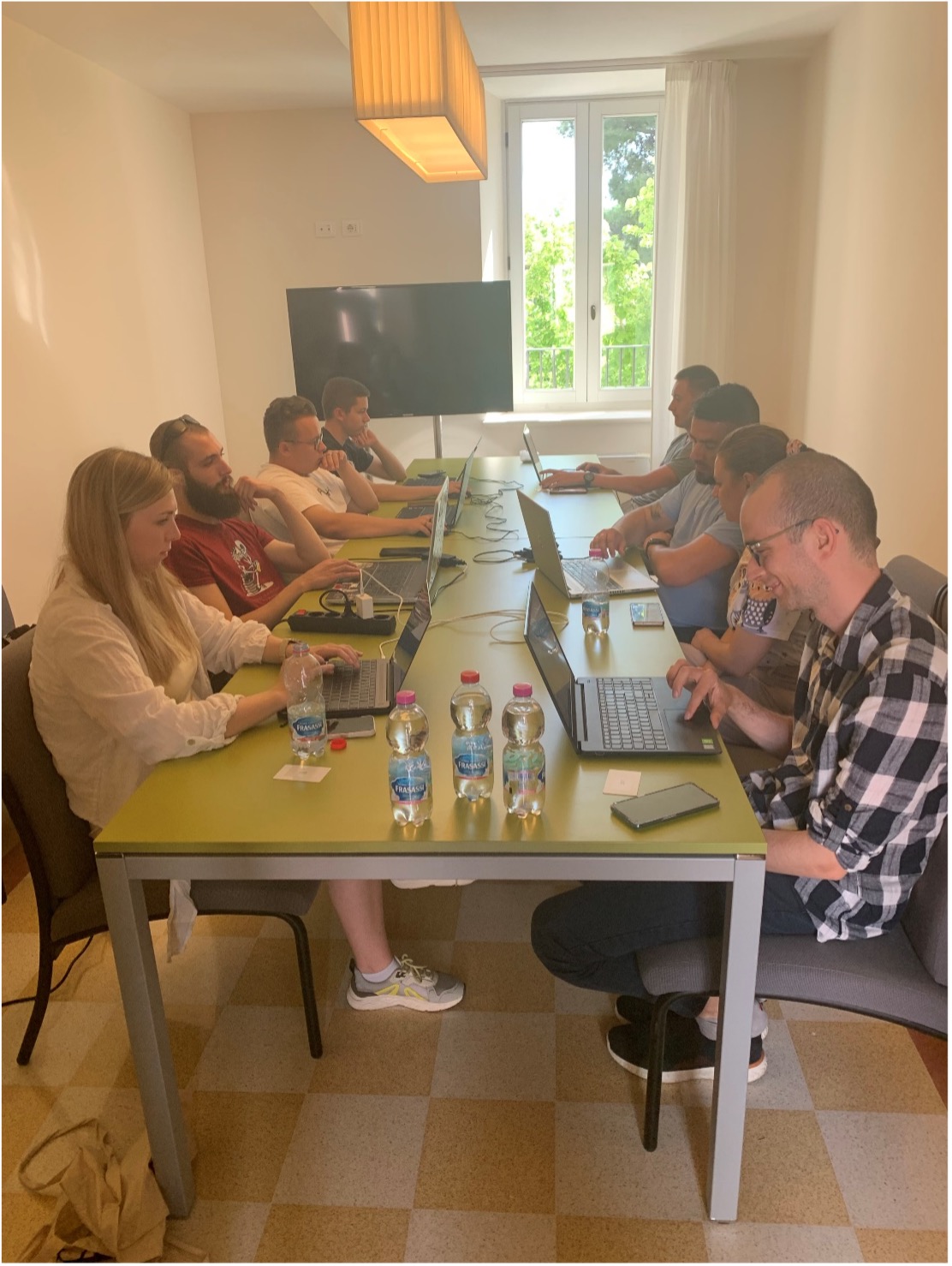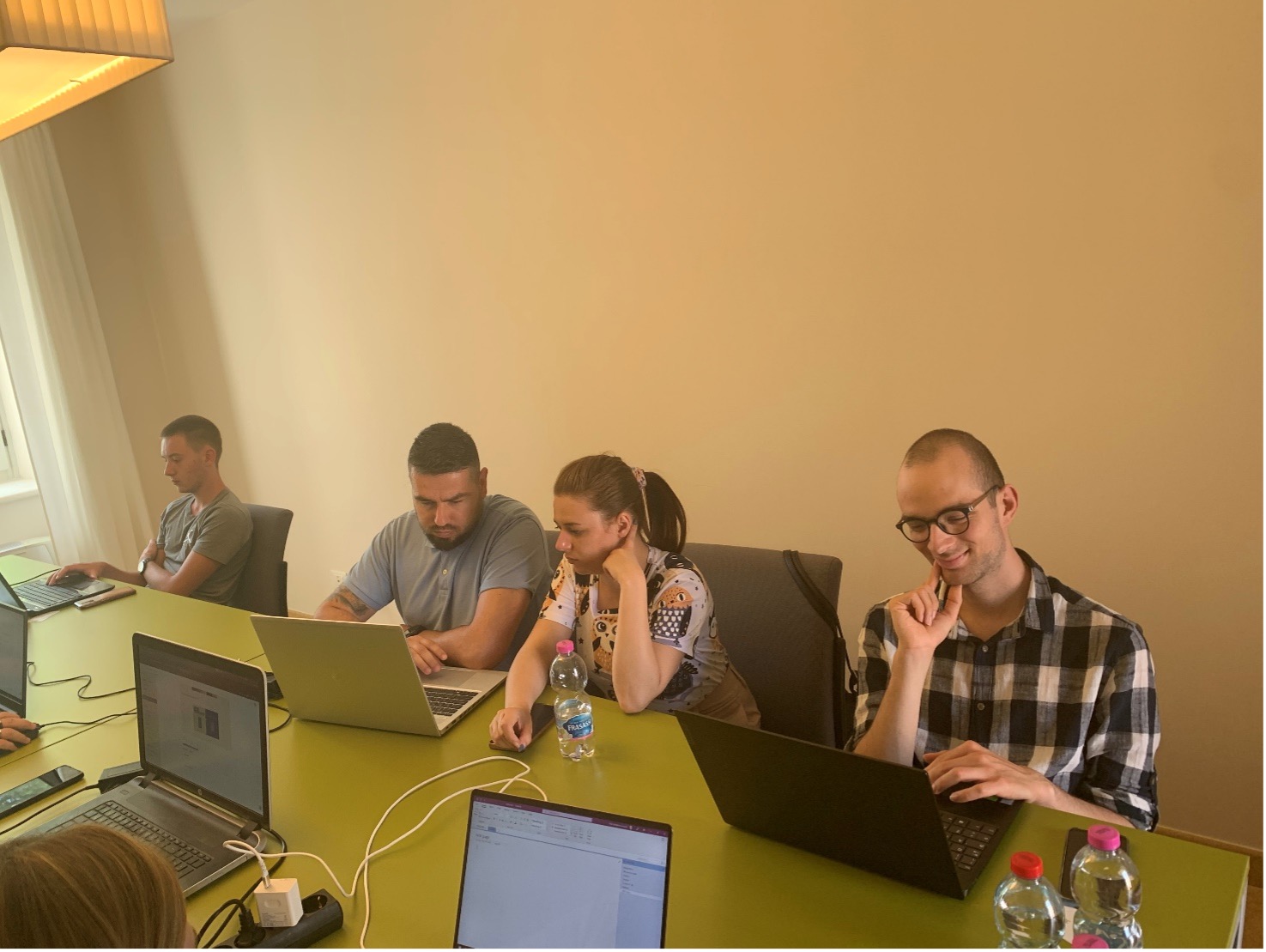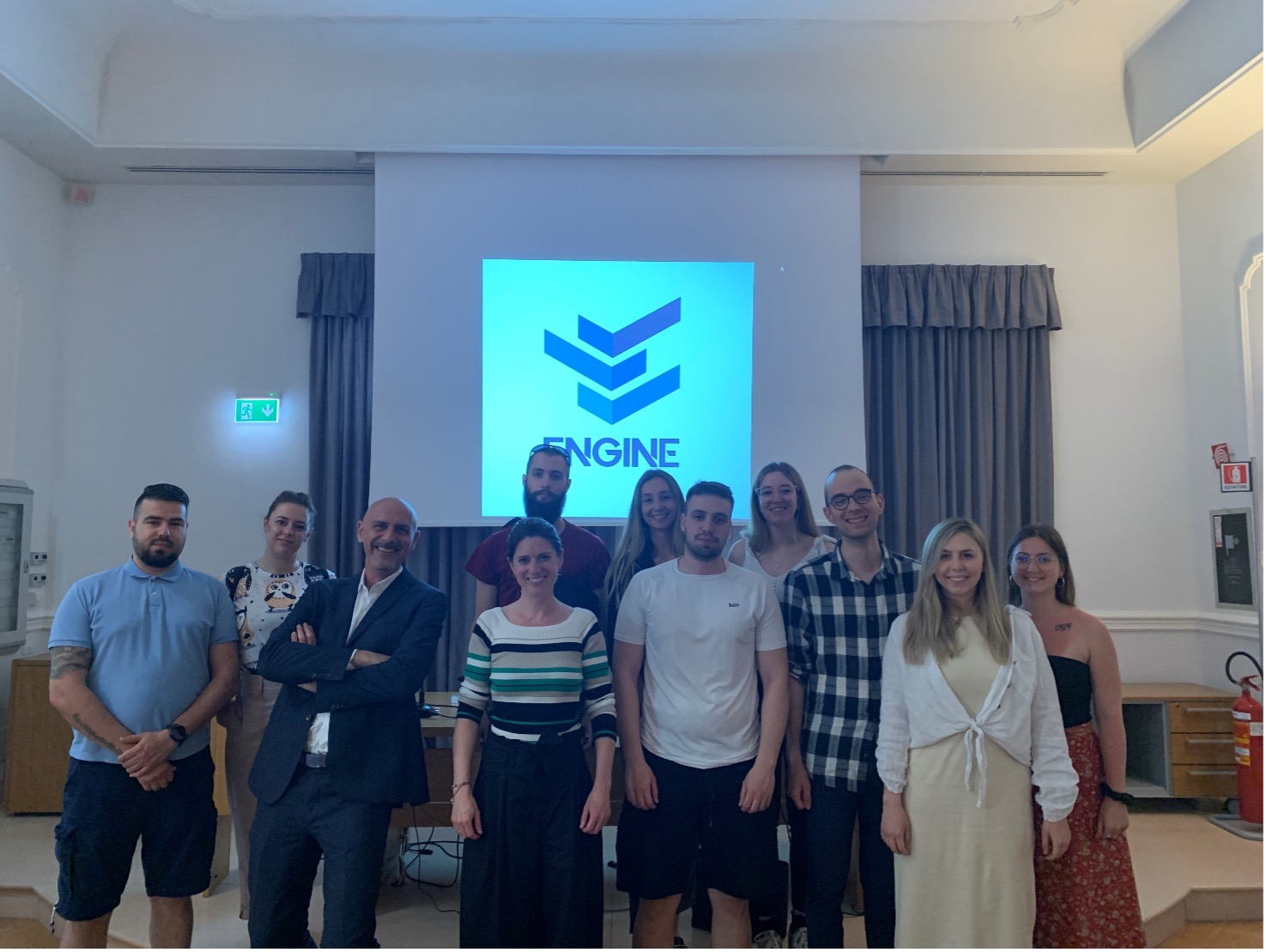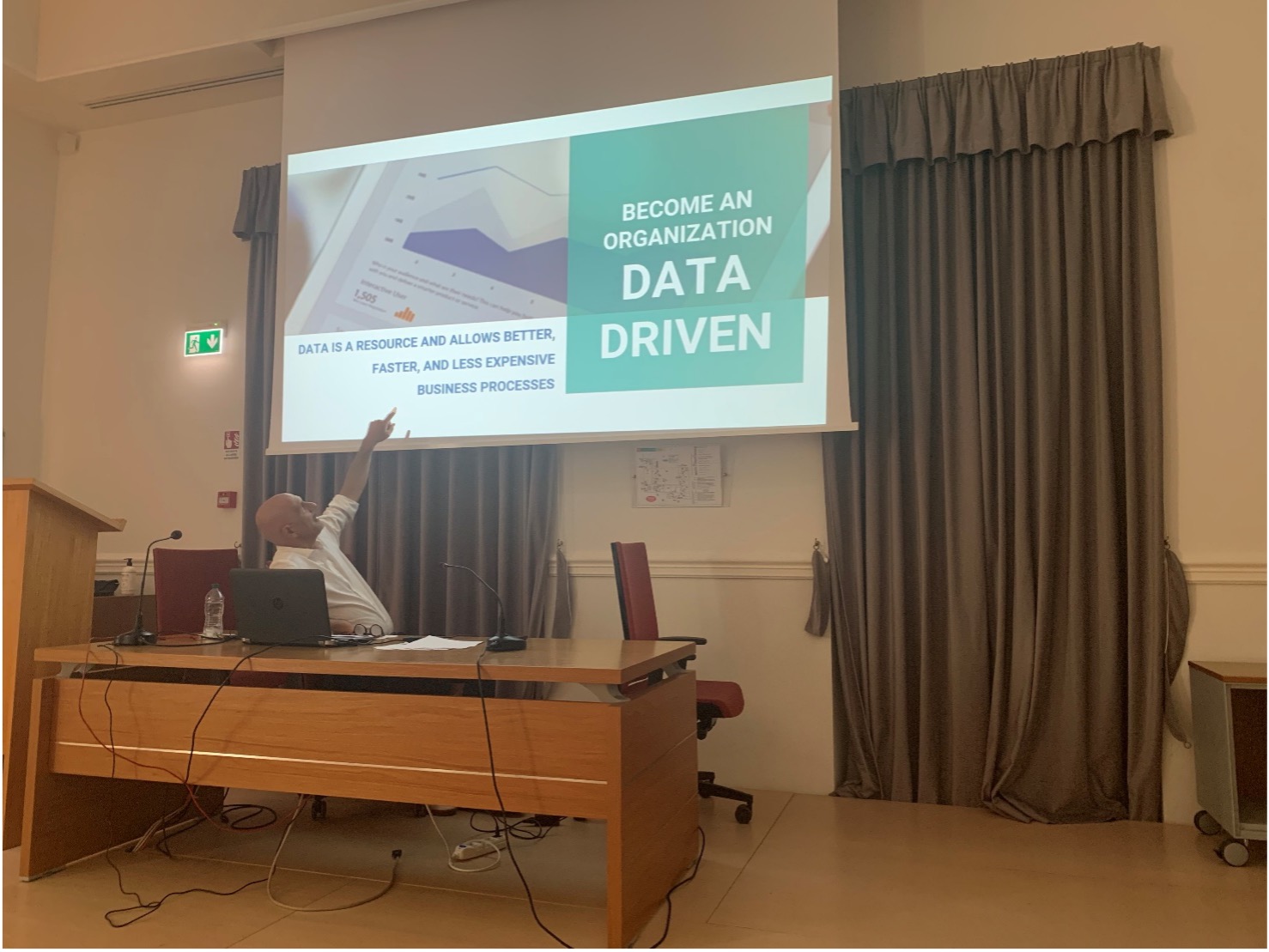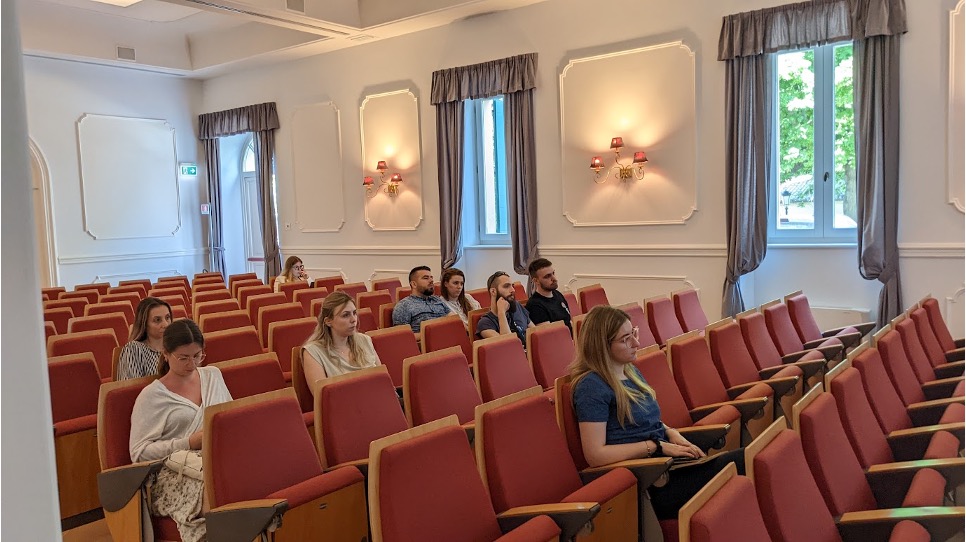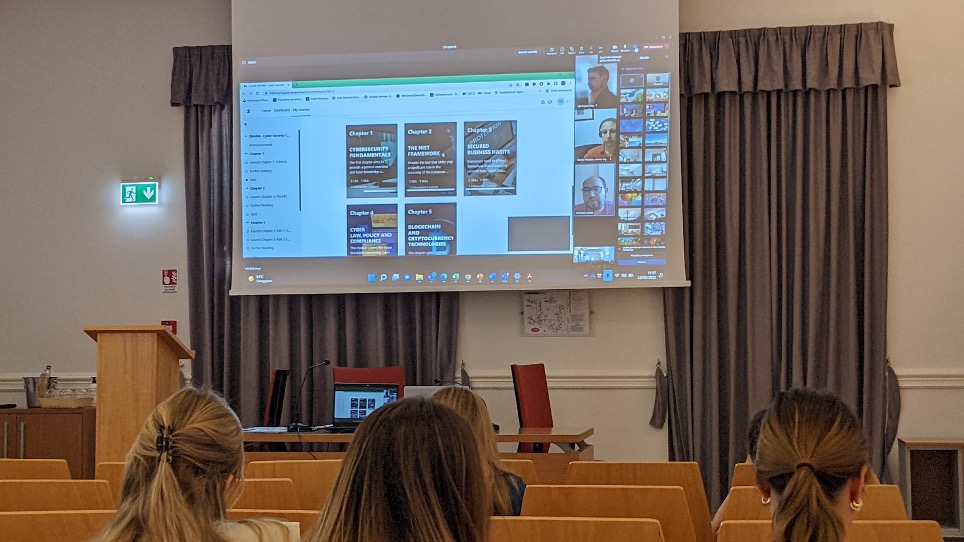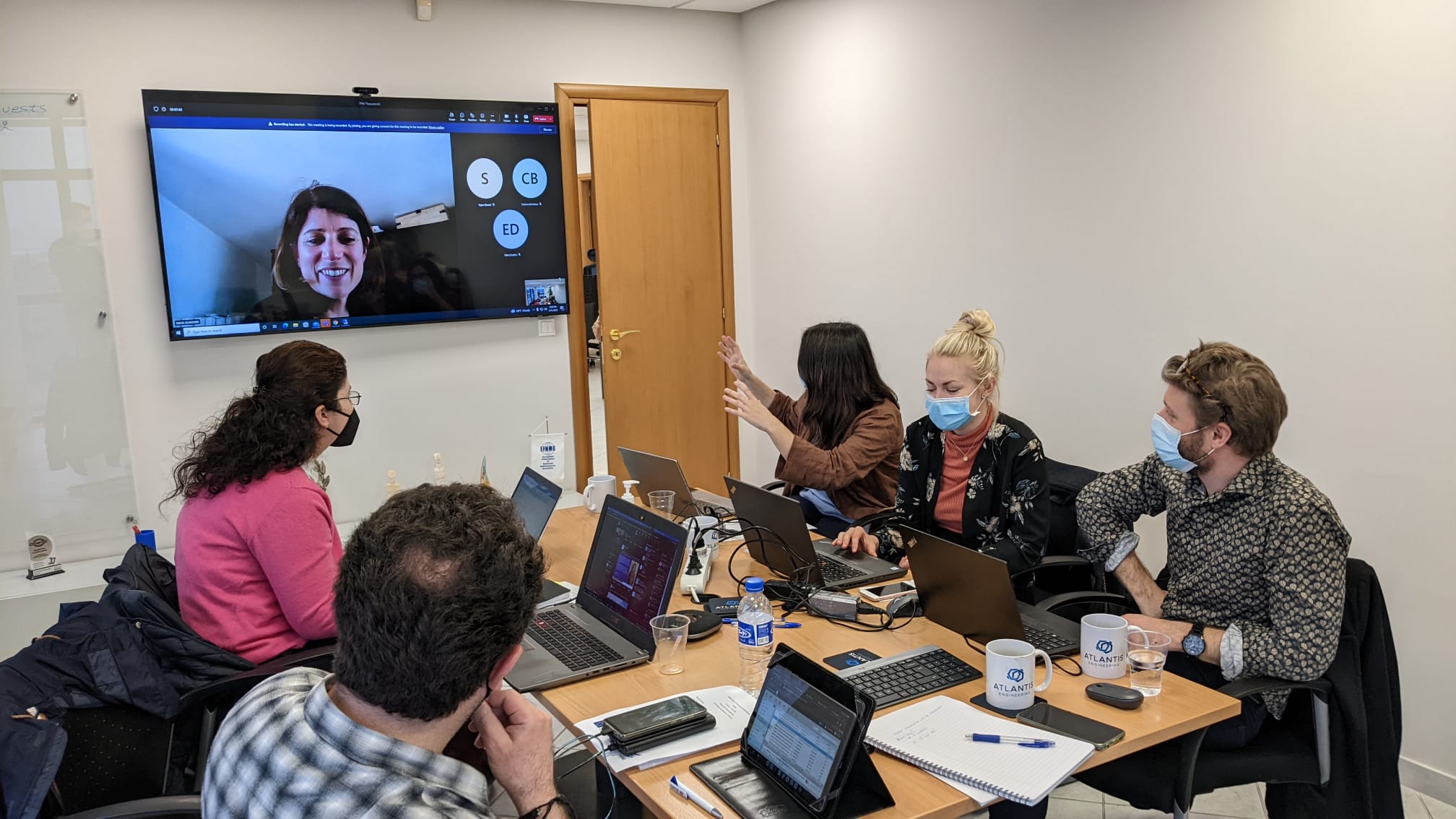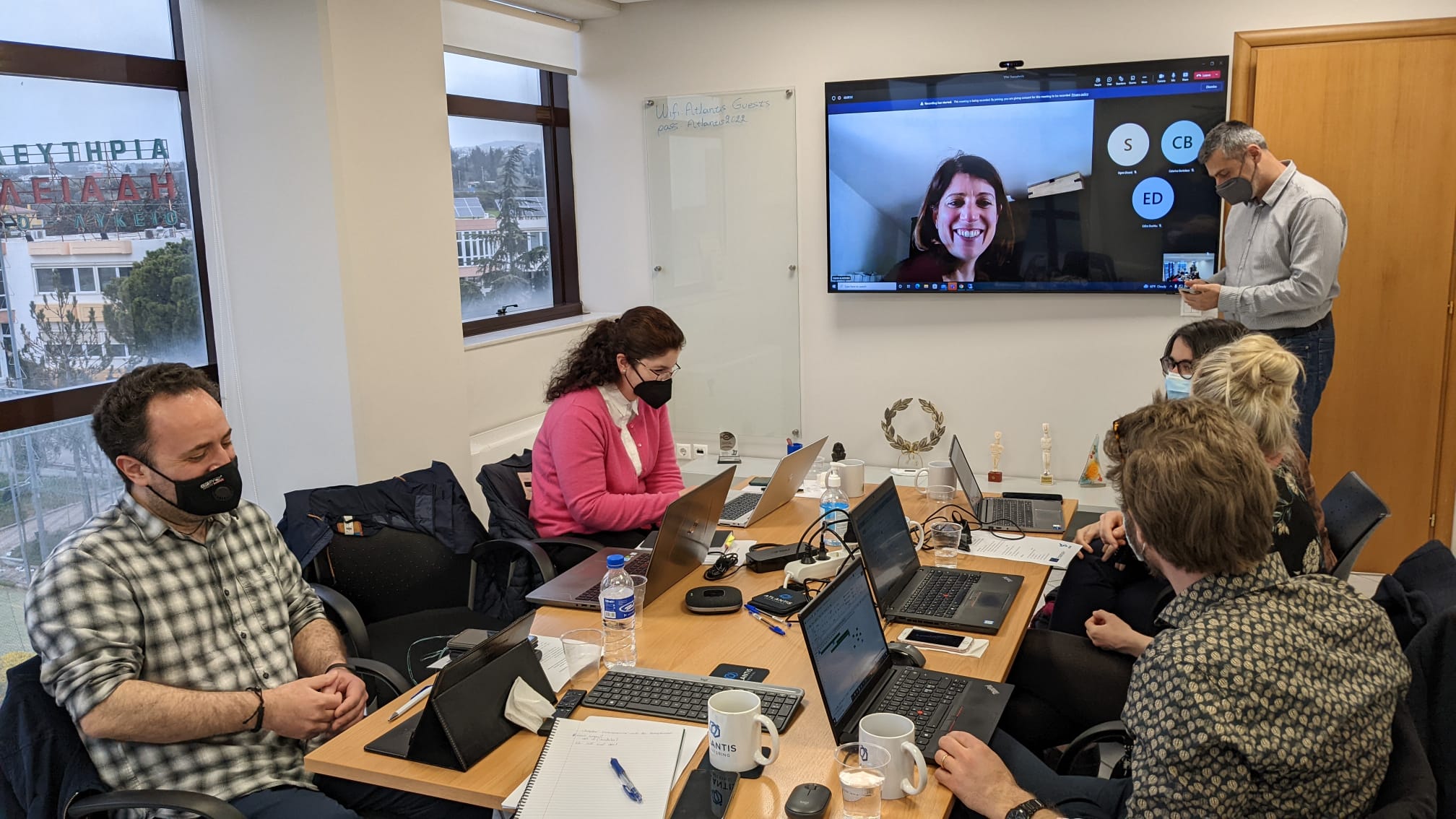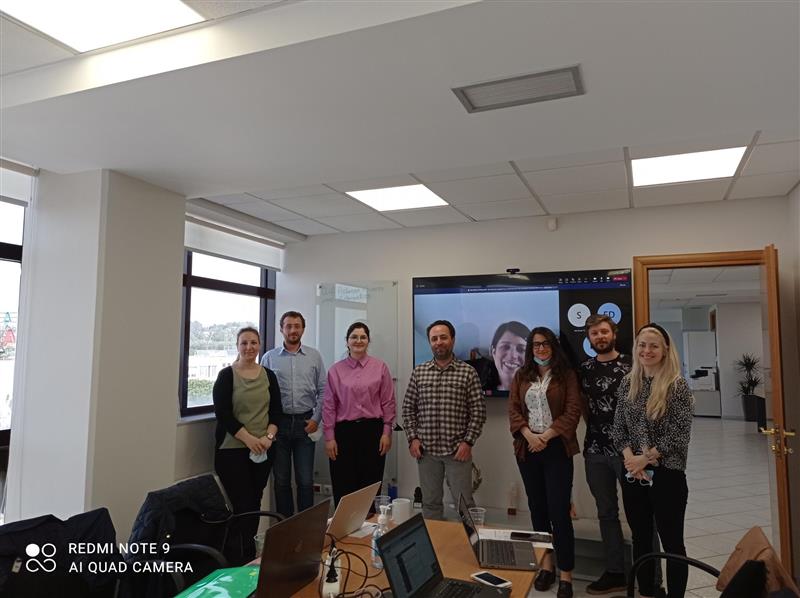NEWS
Final Meeting in Brussels
The final meeting of the ENGINE project took place on 12 and 13 October.
After a two-year journey, the consortium met in Brussels at the offices of Coopération Bancaire pour l’Europe to finalise the project details.
The project tried to respond as effectively as possible to the needs of contemporary companies to protect themselves from the most common cyber pitfalls, by promoting a culture of cybersecurity from the individual employee all the way up to the top management board.
The consortium agreed on some final changes to some of the project’s products (all ENGINE results can be consulted and downloaded from the project website: https://www.engine-project.eu/products/) and inaugurated the main result of all the efforts of the past two years: the E-learning platform that will enable anyone who wants to learn the basics of defence against cyber-attacks to learn more about the various aspects of this topic, improving their own capabilities and the security of the European business system as a whole.
The platform is freely accessible from the project website https://www.engine-project.eu/ or directly from the link https://training.engine-project.eu/.
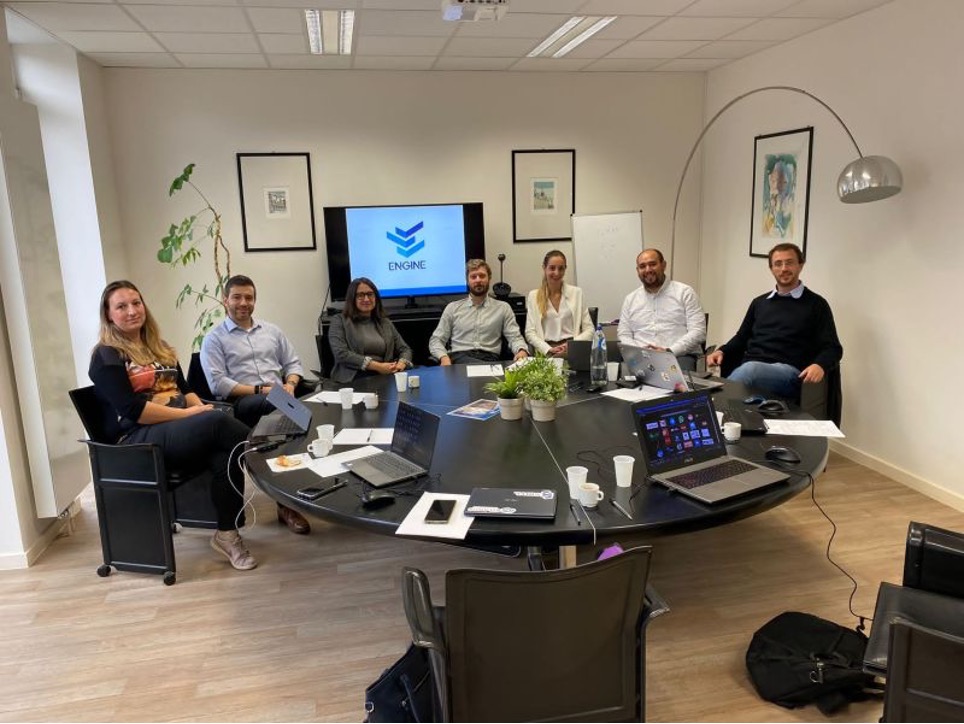
New EU funds available for the implementation of NIS Directive
Significant European funds will be allocated to increase cybersecurity capabilities in the European Union, a goal that the ENGINE project is helping to achieve by producing training material for companies and entrepreneurs.
Thanks to the ‘Supporting The NIS Directive Implementation And National Cybersecurity Strategies’ fund, a topic also addressed by the ENGINE project in the second chapter of the training course (which you can find here: https://www.engine-project.eu/products/), several proposals for the implementation of the NIS Cybersecurity Directive will be financed.
Proposals are expected to deliver on at least two of the following results:
• Enable the Member States to limit the damage of cybersecurity incidents, including economic, social, environmental, or political damage, while reducing the overall costs of cybersecurity for individual Member States and for the EU as a whole;
• Improve compliance with the NIS Directive, higher levels of situational awareness and crisis response in Member States;
• Contribute to enhanced cooperation, preparedness and cybersecurity resilience of the EU.
• The action will also lead to the interconnection of the centres in charge of guaranteeing the cybersecurity of the operator of important service.
Objective:
The action focuses on Member States and European capacity building and the enhancement of cross-border cooperation on cybersecurity at technical, operational and strategic levels. It is a continuation of work currently supported under the CEF Telecom programme. Proposals should contribute to achieving these objectives:
• Development of trust and confidence between Member States.
• Effective operational cooperation of organisations entrusted with EU or Member State’s national level Cybersecurity, in particular cooperation of CSIRTs (including in relation to the CSIRT Network) or cooperation of Operators of Essential Services including public authorities.
• Better security and notification processes and means for Operators of Essential Services and for digital service providers in the EU.
• Improved security of network and information systems in the EU.
• More alignment and harmonisation of Member States’ implementations of the NIS Directive.
The support will target relevant Member State competent authorities, which play a central role in the implementation of the NIS Directive, Computer Security Incident Response Teams (CSIRTs) including sectorial CSIRTs, Security Operation Centres (SOC), Operators of Essential Services (OES), digital service providers (DSP), industry stakeholders (including Information Sharing and Analysis Centres- ISACs), and any other actors within the scope of the NIS Directive.
More information can be found at:
https://ec.europa.eu/info/funding-tenders/opportunities/data/topicDetails/digital-eccc-2022-cyber-03-nis-directive.html

Cybersecurity tips for SMEs
Security is a need in the digital, as much as in the physical world. Protecting critical capacities should not only be a concern for large companies, but it requires the attention of Small- and Medium-sized Enterprises (SMEs), too.
This is why the ENGINE project consortium has developed a training course for entrepreneurs and future entrepreneurs on how to manage cybersecurity issues in the small and medium enterprises environment.
EU-US cooperation in the field is crucial to develop a cybersecurity culture and readiness. The EU-US TTC Working group has developed a framework SMEs to improve cybersecurity during their daily business activities.
The framework can be summarized into seven main concepts:
1. Ask for support – SMEs should not hesitate to ask for support when needed, and we strongly encourage SMEs to check first with their national cybersecurity authorities—each of which has free resources that are available.
2. Build a cyber-security culture – To effectively address cyber risks, a change of mind-set is needed.
3. Identify critical assets – As new technologies emerge, cyber threats also become more complex and difficult to predict.
4. Adopt a comprehensive security strategy – Understanding security, why it is needed, and how to most effectively implement it is key.
5. Invest in education and skills development – Implementing cybersecurity measures does not only imply the installation of certain technical measures, but it also requires educating employees on how to use technologies and providing them with the skills to work in a secure way.
6. Create trust from within and without – Understanding one’s cyber-risks and appropriately conceiving a security strategy also requires building trust.
7. Proceed gradually – Cybersecurity is a multifaceted issue that should be approached step-by-step.
You can download the full document here:
https://ec.europa.eu/newsroom/dae/redirection/document/86569
If you want to follow the full webinar presenting the framework you can access it here:
https://webcast.ec.europa.eu/webinar-on-cybersecurity-trade-and-technology-council-working-group-9-edited-part
Cybersecurity issues and how to raise awareness of the risks
Improving the ability of our companies to protect themselves against cyber attacks has become increasingly crucial, not least given the contemporary geopolitical horizon, where more and more actors capable of being very dangerous are appearing on the cyberspace.
Cecilia Bonefeld-Dahl, Director-General of DIGITALEUROPE, an industry association representing over 36,000 digital companies, and a member of NATO’s high-level advisory group for Emerging and Disruptive Technologies, warns us that cyber-skills, not only of those in defence, but also of those in our business and economic fabric, are crucial for the day-to-day protection of our information systems and, ultimately, our well-being.
It is precisely for these reasons that projects such as ENGINE exist, to train the entrepreneurs and workers of today and tomorrow on cybersecurity issues and to raise awareness of the risks associated with new technologies.
You can read the full article by following this Link: https://news.trust.org/item/20220516142449-2tq37/
ENGINE Project Workshop Activity
The ENGINE project Workshop activity – testing the course content and platform.
During the learning activity of the ENGINE project, the students were divided into two working groups, both of which consisted of at least two participants with a background in computer science and others from different educational backgrounds. One group revised and tested the project content, the other overviewed the platform testing its accessibility and user-friendliness.
It is important in this type of activity that those testing the materials are students who already have some knowledge of the topics covered as well as representatives of the project target group who have no previous experience. Polish students who were on a mobility course at the same facility also took part in the workshop, thus creating even more synergies between EU-funded initiatives!
ENGINE Learning Activity in Ancona (2nd day)
The second day of the training activities organised by Fondazione Luigi Clerici within the ENGINE project opened with an interesting lecture by Francesco Moroncini, CEO of Morolabs, a company specialising in ICT solutions for training and corporate security.
The lecture was instrumental in making the students understand the fundamental pillars of an IT security culture that is increasingly necessary in today’s context.
Mr. Morosini touched on several fundamental topics, from system or network centric to data centric vision to the strategic value of information in making good management decisions, from IT continuity and business continuity to analysing data breach case studies. In conclusion, he explained how prevention is better than cure, clarifying with examples how to put the best corporate cybersecurity behaviour into practice.
ENGINE Learning Activity in Ancona 23-25 May
From 23 to 25 May, Fondazione Luigi Clerici hosted a class of students from all over Europe in the fascinating location of Domus Stella Maris. The participants had the opportunity to test the material produced by the ENGINE project and the educational platform implemented as the latest project result.
After an initial welcome by the director of the Luigi Clerici Foundation, the Italian Chamber of Commerce in Denmark, the project leader, presented the outline of ENGINE and its objectives.
In the afternoon, each project partner presented the chapters they have developed during the project and the educational platform developed during the project was shown for the first time.
The students then analyzed and tested all the materials in various focus groups and workshops. We will talk about this in more detail in the coming days!
We look forward to seeing you in Brussels for the final meeting in October 2022!
ENGINE partners meet in person in Thessaloniki
The ENGINE partnership met, finally in person, at the cosy offices of ATLANTIS engineering in Thessaloniki.
After many virtual meetings, the partnership reviewed the first intellectual output of the project the Training course on CyberSecurity for SMEs acknowledging that all the modifications requested by the scientific committee have been made and that the product can be considered in its final version.
The consortium then compared the partners’ contributions for the second intellectual output a Guideline on how to implement cybersecurity in SMEs. The partnership agreed that the production of the material is already at an advanced stage and pointed out strengths and issues to be corrected.
The partners have also reviewed the status of the third product the Platform to transfer the knowledge to the target SMEs, verifying which technical specifications are essential for an accessible and effective platform.
The meeting concluded with an outline planning of the multiplier events, the pilot course and the final meeting which will close the project.
The whole consortium evaluated the progress of the project very positively, both in terms of time and quality of the materials produced.
The objective is to meet again in Brussels in October after completing all the objectives of the ENGINE project.
Join letter by DIGITALEUROPE and its member associations on the war in Ukraine
In a letter published recently, DIGITALEUROPE, the largest association of digital corporations in Europe and 35 of its national members, call on the European Council to step up its immediate cybersecurity support to Ukraine as the country faces Russia’s aggression, as ministers gather for the Informal Telecommunications Ministerial on 8 and 9 March.
In our letter, we outline both immediate actions to help Ukraine, including facilitating communications to and from the country through safe connectivity, and long-term cybersecurity goals for the whole EU, such as accelerating the set-up of the Cybersecurity Competence Centre in Bucharest and increasing investments in cyber resilience.
EU must also step up attention on cybersecurity for SMEs as they are more at risk from external attacks today than ever before. This is also why the ENGINE project is committed to spreading a culture of cybersecurity in the world of small and medium-sized enterprises by providing innovative training materials for workers and entrepreneurs.
Cybersecurity as significant skill of every individual and business entity
Denmark: Cybersecurity is at the top of the digital agenda in 2022
The ENGINE project is based on the needs expressed by the participating countries and their economic fabric, which is always looking for innovation.
In Denmark, the production system has been undergoing an intensive digitisation process for years, but this development is also accompanied by great risk of digital attacks that could have a very large cost for companies. For this reason, the goal for 2022 is to raise awareness among all players about cybersecurity and how to minimise the risk of attacks. Danish SMEs will need support to improve in this area, and it is courses such as the one that will be produced in the ENGINE project that can help train the companies and workers of the future.
For more information, you can read this article from the Danish Industry Association (in Danish)
https://www.danskindustri.dk/di-business/arkiv/blogs/2021/12/2022-cybersikkerhed-i-top-pa-den-digitale-dagsorden/?utm_campaign=di-business&utm_content=unspecified&utm_medium=email&utm_source=nyhedsbrev

ENGINE Project presented at Industry 4.0 event in Thessaloniki by Atlantis Engineering
Industry 4.0 as the fourth industrial revolution, is not only associated with cyber physical systems but also concerned with areas other than industry applications, e.g., smart cities. In general, it includes topics such as the Internet of Things (IoT), the Industrial Internet of Things (IIoT), Cyber-Physical systems (CPS), Smart Manufacture, Smart Factories, Cloud Computing, Cognitive Computing and Artificial Intelligence (AI). In this process, data is collected and analysed with the use of advanced sensors leading to better decision making, higher productivity and improved quality.
Some organisations are still trying to understand its effect on their business, while others are being prepared and make changes in order to implement it and improve theirs. In order to realise the potential Industry 4.0 has to offer, it is essential that today’s and future workforce acquire the necessary knowledge, skills and know-how.
Taking all these into consideration, Atlantis Engineering S.A. took part in the Industry 4.0 event in Thessaloniki, Greece on 15th October, which was organised in the framework of Beyond 4.0 IT exhibition. Event participants found an interest in the Engine project that shared similar topics of the conference, among which was the impact and opportunities of Industry 4.0 in Europe and AI in Cybersecurity.
More info available at https://www.be4ond-expo.gr/
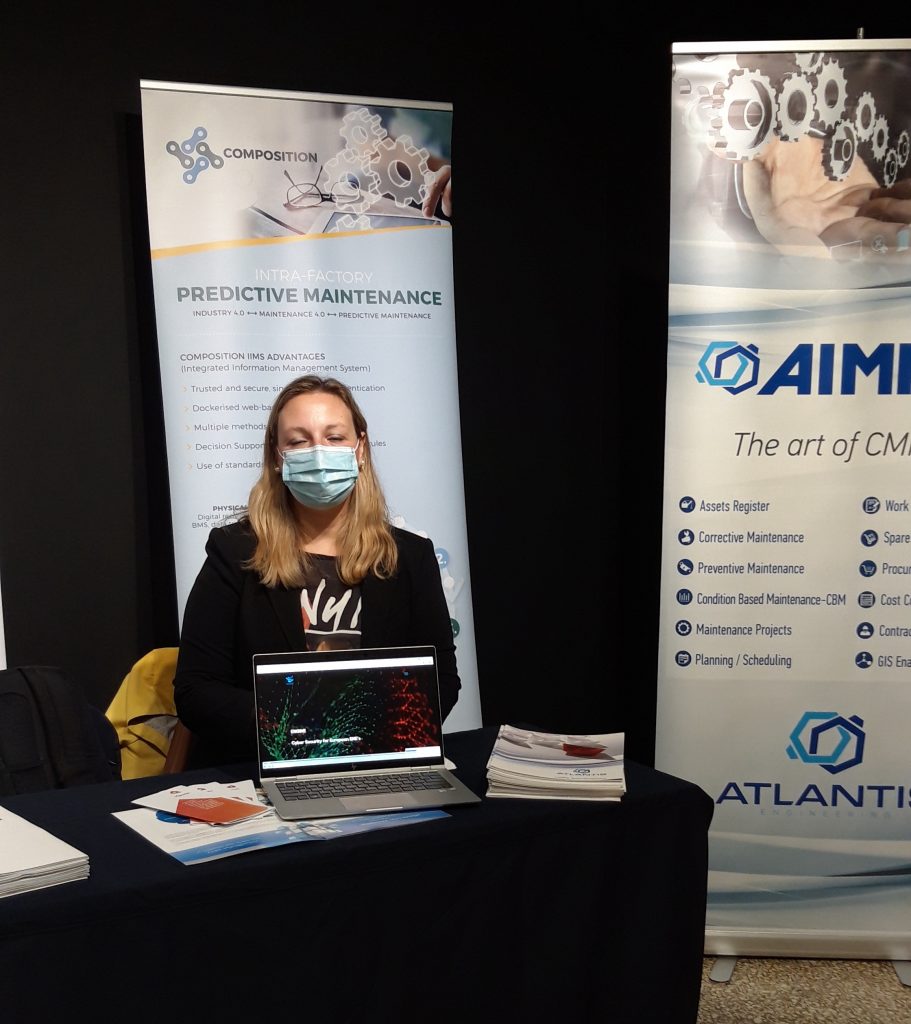
European Research & Innovation Days
Our partner ATLANTIS Engineering SA took part in the European Research and Innovation Days, the annual flagship event of the European Commission on research and innovation, and presented the #ENGINE project interacting with policymakers, researchers, entrepreneurs and citizens.
#Collaboration, #Research and #Innovation were on the forefront during the event in order to recover from the pandemic.
